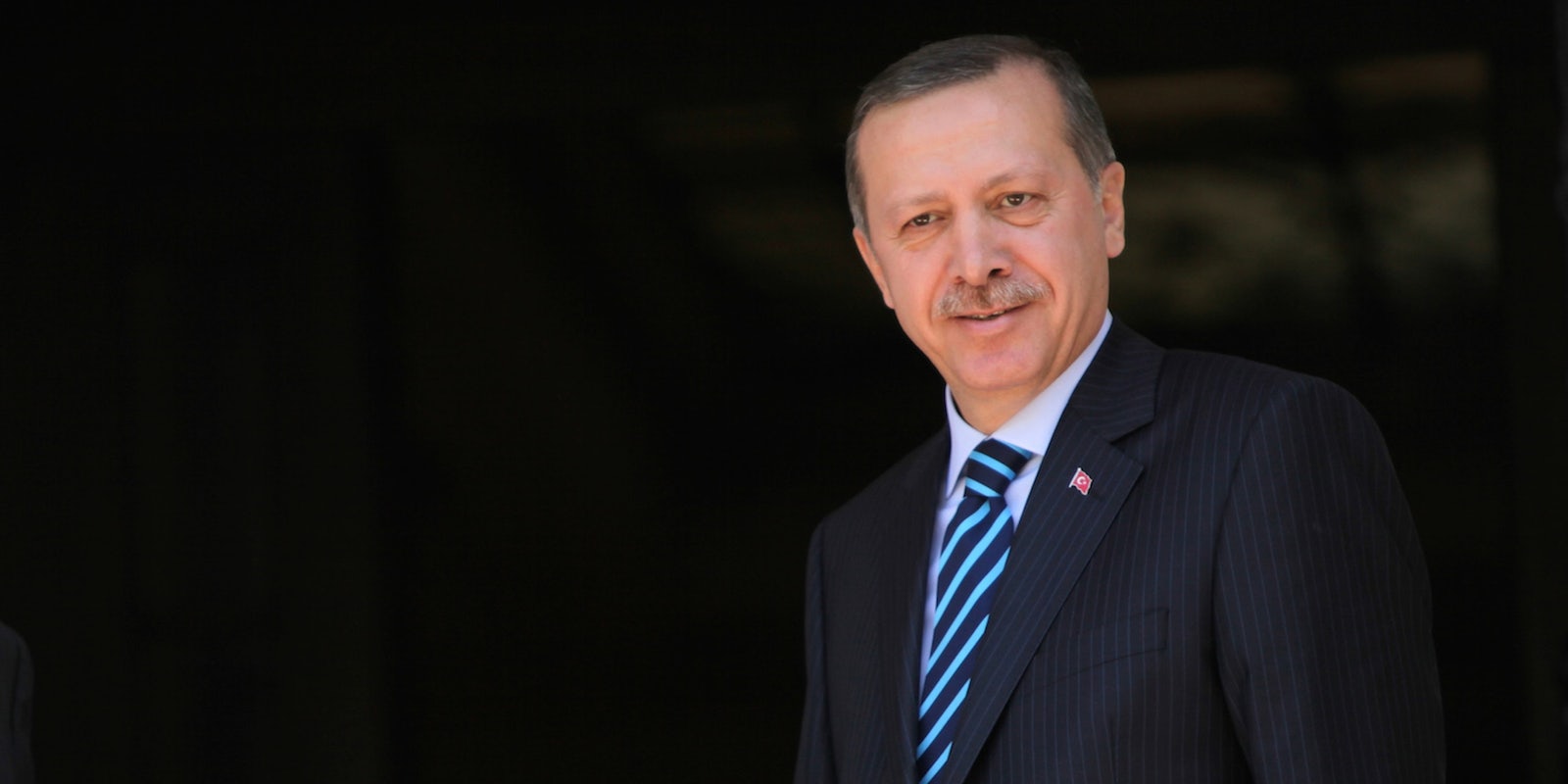Turkey’s authoritarian president, Recep Tayyip Erdoğan, has filed treason charges with the Istanbul prosecutor’s office against the editor of the Turkish newspaper Cumhuriyet.
Can Dündar is facing charges of “crimes against the government,” “providing information concerning national security,” publishing “images and information contrary to the truth,” and “obtaining and disseminating secret information.”
All for publishing a video. But what a video it is.
The video—dated January 19, 2014, but published on May 29 on the newspaper’s website—shows the Turkish police intercepting trucks full of munitions heading toward the Syrian border. The trucks are registered to the MIT, Turkey’s intelligence agency. This after Erdoğan’s administration claimed not to be supporting the Islamist rebels seeking the fall of the Assad regime.
An accompanying article said the trucks in the video carried about 1,000 mortar shells, hundreds of grenade launchers, and over 80,000 rounds of ammunition.
A Reuters report from late May supports the Turkish paper’s allegations.
The article reads in part, “Testimony from gendarmerie officers in court documents reviewed by Reuters allege that rocket parts, ammunition, and semi-finished mortar shells were carried in trucks accompanied by state intelligence agency (MIT) officials more than a year ago to parts of Syria under Islamist control.”
Some of the license plates in the video “matched those given in witness testimony seen by Reuters relating to the Jan. 19 search in the southern province of Adana.”
The Guardian reported on Erdoğan’s claim that although the trucks in the video were MIT owned, they were delivering humanitarian aid supplies to ethnic Turkmen in Syria. He also claimed the police who searched the vehicles had no right to do so, and their actions were part of a “parallel state” led by a Muslim cleric in Pennsylvania. (Yes, that Pennsylvania.)
Turkey has a history, much of it triggered by the president’s authoritarianism, of harsh online censorship, having repeatedly blocked pretty much every social media tool and site available to its citizens. The reasons for these shut-downs run the gamut, from atheism to terrorism to plagiarism.
One of the characteristics of Turkish censorship is overkill. The country’s authorities will frequently ban an entire service to stop the communication of a single blog post, video, or photo.
“We are journalists, not civil servants,” Dündar said Monday on Twitter. “Our duty is not to hide the dirty secrets of the state but to hold those accountable on behalf of the people.”
“There is nothing equal to First Amendment in Turkish Law,” Erkan Saka, Turkey editor for Global Voices and assistant professor at the School of Communication at Istanbul’s Bilgi University, told the Daily Dot. “Media has always been subject to pressure by authorities but not as intense as at the moment since the coup d’etat in 1980.”
Because Dündar is a very well known editor, Saka said he is unlikely to see much of a jail sentence. This action, he said, is at least in part an attempt to intimidate journalists across Turkey. Those who are “not that famous …might actually be exposed to a long sentence.”
In the last two or three years in particular, according to Saka, “authorities (have) continuously used the option of state security and ordered journalists not to cover ‘sensitive issues’ like the MIT trucks.”
Dündar does not face down Erdoğan alone. As another Turkish paper, the English-language Today’s Zaman noted, Tuesday’s issue of Cumhuriyet featured full-color photos of every contributor to the story with the headline “We are responsible.”
Another English-language newspaper, the Hurriyet Daily News, reported that 400 Turkish intellectuals—academics, law professors, business people, actors, authors, artists, and human rights activists—signed an open letter in support of the paper and its editor and demanded the government make the actions of the MIT transparent.
Turkey is facing a parliamentary election on June 7, with the Erdoğan’s Islam-focused AKP (Justice and Development Party) facing off against candidates from 31 opposition parties.
Photo via Πρωθυπουργός της Ελλάδας/Flickr (CC BY SA 2.0)


